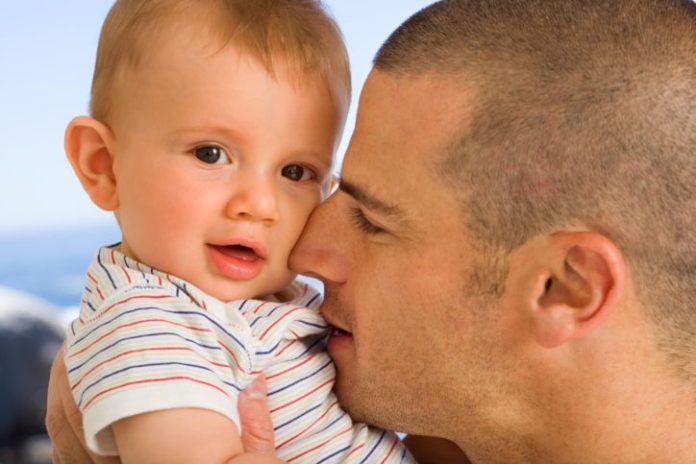Children whose fathers are more positively engaged with them at the age of three months have fewer behavioural problems at the age of twelve months, according to new research funded by the Wellcome Trust. The study suggests that interventions aimed at improving parent-child interaction in the early postnatal period may be beneficial to the child’s behaviour later in life.
Behavioural disorders are the most common psychological problem affecting children. They are associated with a wide range of problems in adolescence and adult life, including academic failure, delinquency, peer rejection, and poor psychiatric and physical health. Research suggests that the roots of enduring behavioural problems often extend back into the preschool years.
Epidemiological studies have identified several risk factors for the onset and continuity of behavioural problems. Among these, parenting characteristics and patterns of parent-child interaction seem to be particularly important. However, studies of parental factors usually focus on the role of the mother.
In a study published today in the ‘Journal of Child Psychology and Psychiatry’, researchers at the University of Oxford studied 192 families recruited from two maternity units in the UK to see whether there was a link between father-child interactions in the early postnatal period and the child’s behaviour.
Dr Paul Ramchandani – a researcher and clinical psychiatrist now based at the Academic Unit of Child and Adolescent Psychiatry, Department of Medicine, Imperial College London – led the study, which assessed father-infant interactions in the family home when the child was aged three months and compared them against the child’s behaviour at the age of twelve months.
The researchers found that key aspects of the father-infant interaction, measured very early in children’s lives, were associated with an increased risk of behavioural problems in children at an early age. This is the first time that this apparent influence has been demonstrated for observed father-infant interaction and such early onset behaviour problems.
“We found that children whose fathers were more engaged in the interactions had better outcomes, with fewer subsequent behavioural problems,” explains Dr Ramchandani. “At the other end of the scale, children tended to have greater behavioural problems when their fathers were more remote and lost in their own thoughts or when their fathers interacted less with them. This association tended to be stronger for boys than for girls, suggesting that perhaps boys are more susceptible to the influence of their father from a very early age.
“We don’t yet know whether the fathers being more remote and disengaged are actually causing the behavioural problems in the children, but it does raise the possibility that these early interactions are important.”
The researchers believe there are several possible explanations for the association. The lack of paternal engagement could reflect wider problems in family relationships, with fathers who are in a more troubled relationship with their partner finding it more challenging to engage with their infant.
Alternatively, it may reflect a broader lack of supervision and potentially care, for the infant, resulting in an increase in behavioural disturbance. Another possibility is that the infant’s behaviour represents its attempt to elicit a parental reaction in response to an earlier lack of parental engagement.
Dr Ramchandani adds: “Focusing on the infant’s first few months is important as this is a crucial period for development and the infant is very susceptible to environmental influences, such as the quality of parental care and interaction.
“As every parent knows, raising a child is not an easy task. Our research adds to a growing body of evidence that suggests that intervening early to help parents can make a positive impact on how their infant develops.”
Source: Wellcome Trust











